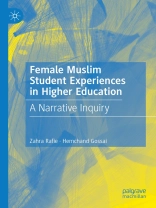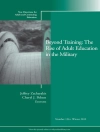This ethnographic study explores the lived experiences and challenges felt by Muslim female students in higher education in the greater District of Columbia, Maryland, and Virginia (DMV) area. It offers narrative case studies as a form of narrative inquiry based on stories of lived experience as a means of capturing dynamic, didactic, and dialectic understandings to promote and enable needed change in higher education. In centering the voices of Muslim female students, this research goes beyond the narrow statistical representation of predefined categories to examine and present the systematic nature and roots of social prejudice.
สารบัญ
Chapter 1. Introduction: Setting the Theoretical Framework.- Chapter 2. The Social Construction of the Other: Invisibility and Surveillance.- Chapter 3. Islamophobia; Discrimination and Microaggressions.- Chapter 4. Islamophobia Veiled as Impostorism.- Chapter 5. Voice and Belonging.- Chapter 6. Acceptance and Resistance: The Construction of Lived Realities.- Chapter 7. Dismantling Disinformation and Stereotypes
เกี่ยวกับผู้แต่ง
Zahra Rafie is Professor of Sociology at Northern Virginia Community College, USA.
Hemchand Gossai is Associate Dean of Humanities and Social Sciences at Northern Virginia Community College, USA.












